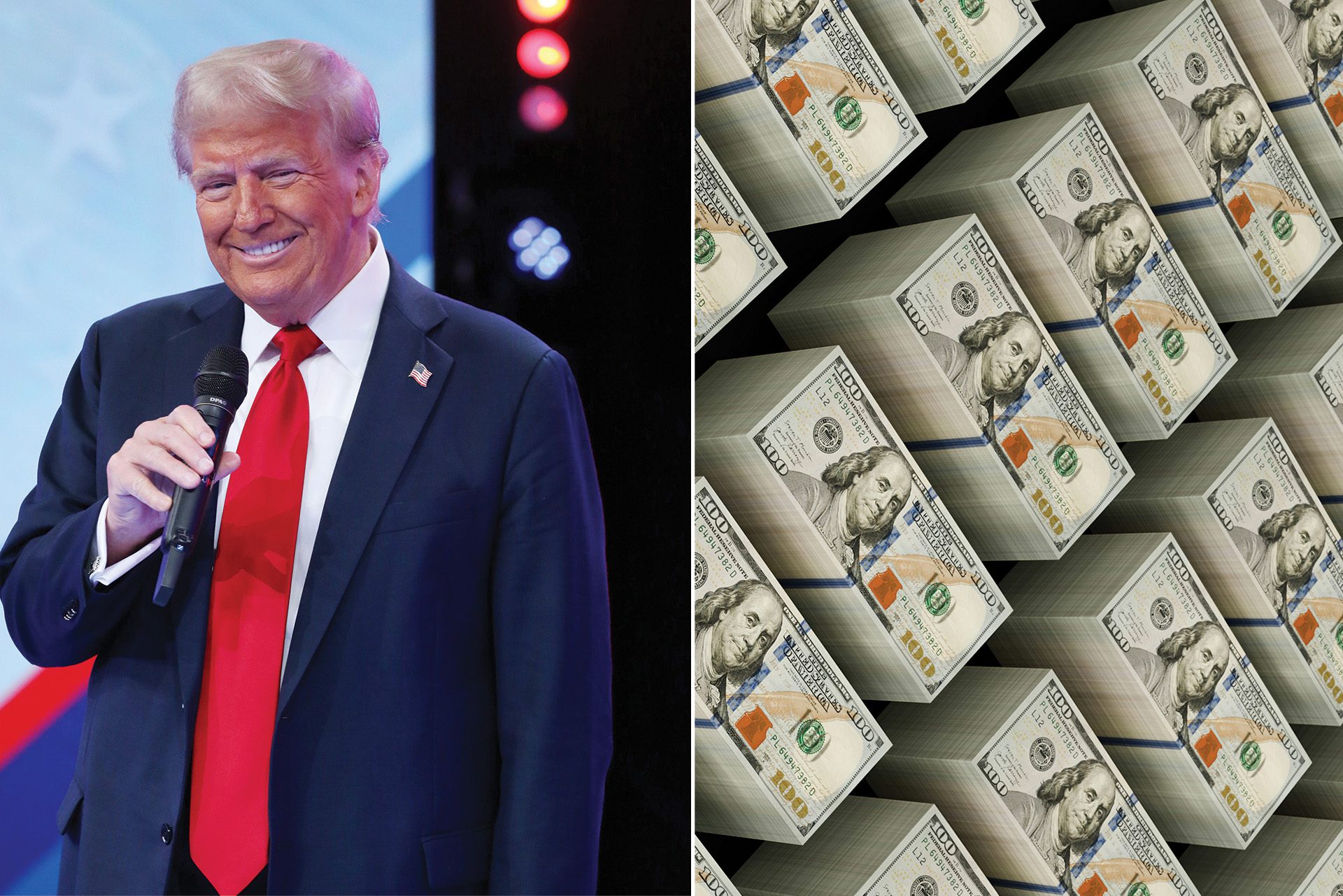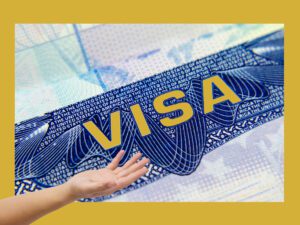 First image: Guille Briceno/imageSPACE/MediaPunch/Alamy. Second image: Logan Voss/Upsplash
First image: Guille Briceno/imageSPACE/MediaPunch/Alamy. Second image: Logan Voss/Upsplash The Trump administration announced last week that it will add a $100,000 fee for H-1B visa applications. Borderless Magazine compiled a guide explaining these changes, who’s impacted and what’s next.
Donald Trump’s administration announced a new $100,000 fee for H-1B visa applications, sparking concern among immigrant employees and employers.
The proclamation, signed last week, says the new fee aims to curb “abuse” of the program, visa fraud and national security threats by imposing higher fees on companies and restricting the entry of some workers into the U.S.
For 35 years, the H-1B visa program has enabled millions of highly-skilled foreign workers to work in the U.S. legally in specialty fields, including technology and engineering. Companies like Amazon, Microsoft, Apple and Google consistently rank among the top employers of H-1B recipients. The program intended to draw more outside talent to the U.S., but now faces concerns that increased fees could encourage foreign workers to emigrate — impacting the U.S. economy.
News that puts power under the spotlight and communities at the center.
Sign up for our free newsletter and get updates twice a week.
“The whole point of the H-1B is to drive the most smart and gifted talent to the United States, and instead, we’re pushing them away,” said Jeff Joseph, president of the American Immigration Lawyers Association (AILA), in a press briefing Monday.
Borderless Magazine compiled a guide on what to know about the H-1B visa, who these changes impact and what to expect next.
What is the H-1B visa?
H-1B visas were created as part of the 1990 Immigration Act and are meant to attract highly educated, skilled workers to the U.S. to fill specialized roles in fields like engineering, technology and finance. The visas are initially valid for three years, and have the potential to be extended up to six years.
Petitions must be filed by the employer, who must ensure that hiring the H-1B applicant will “not adversely affect the wages and working conditions of similarly employed U.S. workers.”
In order to qualify, employees must have at least a Bachelor’s degree or higher, or its equivalent, and the occupation must “require a theoretical and practical application of a body of highly specialized knowledge.”
Each fiscal year, only 65,000 visas may be issued, with an additional 20,000 for those with a Master’s degree or higher.
Read More of Our Coverage
Depending on the employer, H-1B visa application fees alone can often cost over $10,500, according to Sharvari Dalal-Dheini, senior director of government relations at AILA. She noted, during a press briefing, that Congress had already authorized fees that address the concerns stated in the proclamation, including a fee for fraud and abuse within the H-1B system and a fee to train American workers.
“This is something Congress has already clearly spoken on and set a fee for,” Dalal-Dheini said.
What is Trump’s new proclamation?
Trump’s move to add a new $100,000 fee for H-1B petitions is part of his plan “to put American workers first, and this commonsense action does just that by discouraging companies from spamming the system and driving down American wages,” White House spokeswoman Taylor Rogers told NBC News.
Exceptions can also be made to anyone whose employment is deemed necessary to the national interest and does not pose a national security threat. Following the initial proclamation, the White House and DHS released statements clarifying that the fee is not an annual fee, but a one-time fee.
The fee went into effect at 12:01 a.m. Eastern Standard Time on Sunday and is scheduled to expire after one year, but could be extended.
Who does it affect?
The $100,000 fee is a one-time fee and only applies to new H-1B visa petitions submitted after 12:01 a.m. Eastern time on Sept. 21, 2025. It does not apply to any previously issued H-1B visas, or petitions submitted prior.
White House Press Secretary Karoline Leavitt said on X that those currently outside the country will not be charged the fee to re-enter. She said the new fee will apply in the upcoming 2026 lottery cycle. The proclamation does not impact a current H-1B visa holder’s ability to travel inside and outside the U.S.
What’s next?
Some experts say this is the first time Section 212(f) of the Immigration and Nationality Act (INA) has been used by the president to condition the entry of specific individuals based on payments. Section 212(f) generally allows the president broad authority to decide who enters the country.
“But the expansion of 212(f) authority to allow a tax on entry and to be used internally to prevent the approval or adjudication of petitions is not what the statute was designed to prevent,” Joseph said. “I think it’s going to ultimately be challenged in court.”
Typically, this section of the INA is used to suspend the entry of noncitizens who affiliate themselves with a group opposed by the U.S. government.
With uncertainties still looming, legal experts advise visa holders to avoid non-essential travel until further clarification on the policy is provided.
This article is for educational and informational purposes only and should not be construed as legal advice.
Tara Mobasher is Borderless Magazine’s newsletter writer and reporter. Email Tara at [email protected].


